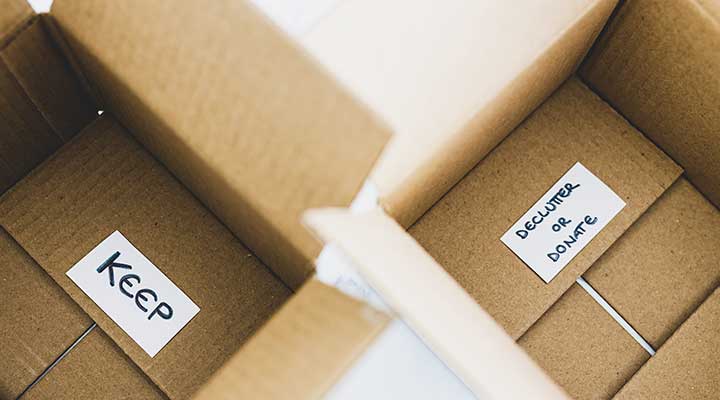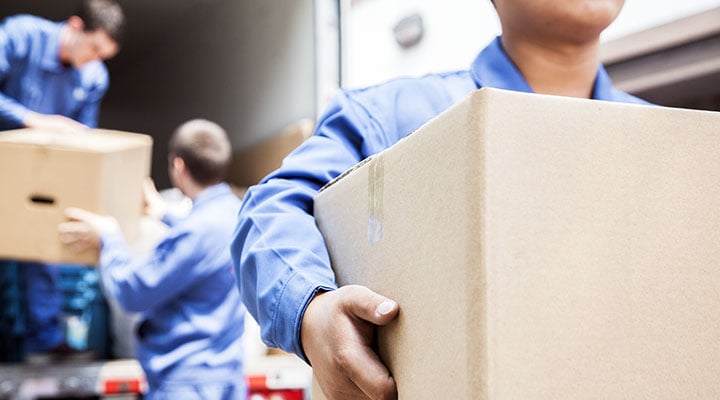
5 Tips for Moving to a New State Alone
Feb 20, 2024 / Laura Bolt
If you’re moving to a new state alone, it’s easy to get overwhelmed. After all, moving is stressful even under the best of circumstances!
But with a little planning, some organization and the tips below (plus a few deep breaths), you’ll be sailing through your move and enjoying life in your new city in no time.
1. Do Your Research
Don’t let a fear of the unknown keep you from moving to a new state alone! Spend some time on travel blogs and local websites, reach out to anyone you know who might be familiar with the area, and try to get a sense of what life will be like in your new home.
If you’re moving for work or school, check into resources your office or campus might have for new residents.
If you can, consider renting for a few months or getting a short-term sublet to give yourself a chance to acclimate to the area before you really settle in.
Consider renting for six months to a year to get to know the area, and to find a local real estate agent who can help make the process easier, says Madeleine Perez, residential real estate professional in Los Angeles for Compass recommends. (For more information about whether renting is right for you, let us help you weigh the pros and cons.) You can even think about storing larger items until you’ve found somewhere you feel confident about.
If you’re feeling intimidated about meeting people in a new city, try to place yourself near things that you feel connected to. Are you a student? Choose an area near campus, or close to bookstores, libraries or coffee shops. Sports fan? Being close to a local park or field could help you find like-minded athletes and outdoorsy types who can welcome you to the neighborhood.
The more time you give yourself to get familiar with the area, the faster you’ll start feeling like a local.
2. Minimize and Declutter

Moving to a new state, especially by yourself, can be a great catalyst for paring down your stuff. Taking some time to do a major closet cleanse and minimizing your belongings can save you time, space and money down the line.
Take into account where you’ll be moving—if you’re moving to sunny Florida, you can probably part with those winter coats. Heading to Denver? Maybe it’s time to part ways with the surfboard and beach accessories.
Decluttering before you move is also a great way to keep costs down. If there are larger objects like couches, bed frames, desks or appliances you can part with, you can save on shipping or driving them to the new state.
3. Consider the Timing
To make sure you’re not stuck in a lurch when you arrive, Perez says to make sure that you’re asking your moving company the right questions before you go.
“Relocating your furniture and your car is a big process,” she said. “Sometimes with cars or moving by freight, the trucks take off when they’re full, not when it’s convenient for you. So when you’re interviewing movers, you want to ask if your things are going to ship independently, or as part of a unit. It’s important to know the timeline so your items arrive when you need them to.”
Before you start packing, don’t forget to read our essential guide to moving out, so you’ll be ready when moving day finally comes.
4. Pack Smart

Moving is not one of those activities you can save until the last minute, especially when you’re making a move out of state alone.
When it comes to cross-country moves, improper packing is one of the most major mistakes you can make, says Bruno Svirsky, CEO of Safeway Moving Systems (which specializes in long-distance moves). Whether you’re transporting items yourself or hiring a moving company, long distance means more chances for damage, so you want to pack well.
“Our brains always trick us into thinking things will be easier than they are,” Svirsky notes. “The most important thing when it comes to packing is to be prepared, and take your time with it,” he says.
Svirsky recommends allotting at least one day per room.
“Utilize a lot of newspapers or crumpled-up papers and fill the bottom of and the top of the box so there’s enough cushion,” he cautions. “If you can press into the corners and feel space, it’s likely those boxes will crumble under pressure.”
According to Svirsky, skimping on the packing supplies might save you money in the short-term, but you may pay the price down the line with crumpled boxes and broken items. Purchasing high-quality packing materials can be the difference between a successful move and a trip to the mall to replace valuable items.
5. Organize Items
One of the most powerful ways to keep the stress at bay (and ensure you don’t make any major mistakes) is to stay organized. Make sure to prepare any documents you’ll need and want to keep safe so they don’t get lost in the shuffle.
Since you’ll be traveling out of state, it will be important to make sure that anything you need for your travels (plane tickets, ID, etc.) is also readily accessible.
It can also help to organize your packing by need. Pack things you’ll need as soon as you arrive separately, so you don’t have to dig into the back of the moving truck just to grab something you’ll need on your first night.
Depending on when (and where) you move, sorting items by season can also help you keep track of the things you’ll need on-hand when you arrive.
Packing your kitchen second to last, so you’re sure to devote enough time to those fragile items.
If all of that sounds like a lot, checklists are your friend! Making a thorough checklist can keep you from forgetting those important details when you’re on your own, while also giving you peace of mind that you’ve got everything under control.
Check out our blog for an ultimate moving-out checklist.
Finally, we all know that moving is expensive, so don’t forget to keep your finances organized as well. A spreadsheet that sets and tracks your budget and includes items like packing supplies, movers and travel costs can help guard against unexpected expenses.
Good luck with your move!






